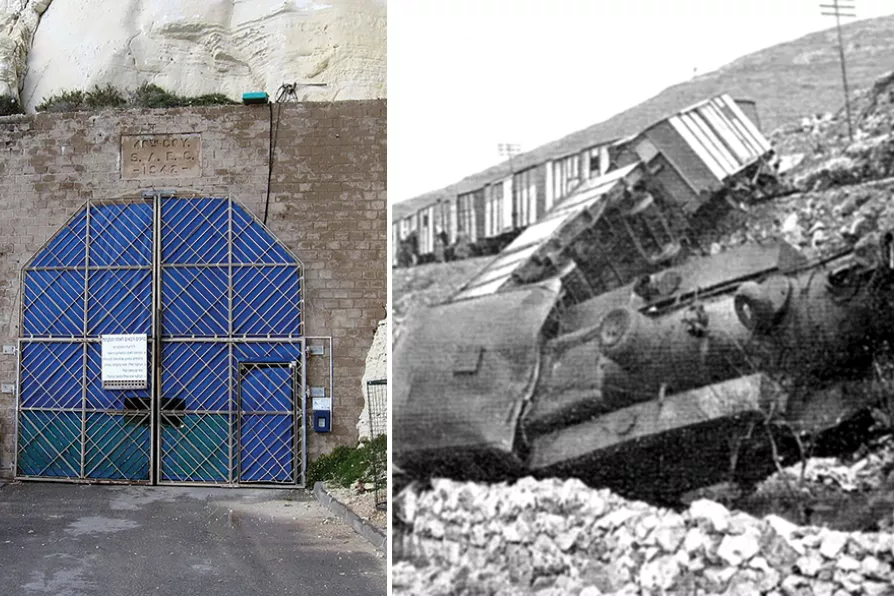The far right thrives on division, but denying racism within the left only strengthens it. As we mobilise for the All Together March, real solidarity demands honesty about our own failures, argues ROGER McKENZIE

 WILFUL DESTRUCTION: (L to R) South portal of Rosh HaNikra tunnel, pic taken in January 2007, on the now-disused section of the HBT between Israel and Lebanon completed in 1942; Kitson K-class 2-8-4T and train of freight vans on the Jaffa – Jerusalem line after being sabotaged by Jewish extremists in 1946
[(L to R) Golf Bravo/CC - Palestine Railways/Public domain]
WILFUL DESTRUCTION: (L to R) South portal of Rosh HaNikra tunnel, pic taken in January 2007, on the now-disused section of the HBT between Israel and Lebanon completed in 1942; Kitson K-class 2-8-4T and train of freight vans on the Jaffa – Jerusalem line after being sabotaged by Jewish extremists in 1946
[(L to R) Golf Bravo/CC - Palestine Railways/Public domain]
BY 1914, Palestine Railways had the greatest ratio of railroad tracks per capita in the Middle East, a consequence of European capitalist penetration coupled with military strategy.
Today, Israel has an extensive railway network: excluding light rail, the network consisting of 1,511km of track, and is undergoing constant expansion.
But Gaza and the West Bank have no railway as their 519km of track and its stations have been erased: in Gaza from the Egyptian border to Jaffa via Rafah, Khan Younis and Gaza city and in the West Bank from Tulkarm to Nablus.

On International Day of Solidarity with the Palestinian People, HUGH LANNING warns that the US-led “Comprehensive Plan” entrenches decades of Western complicity in Israel’s domination and denial of Palestinian land and rights

Israel’s messianic settler regime has moved beyond military containment to mass ethnic cleansing, making any two-state solution based on differential rights impossible — we must support the Palestinian demand for decolonisation, writes HUGH LANNING












